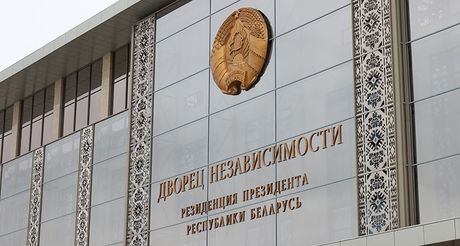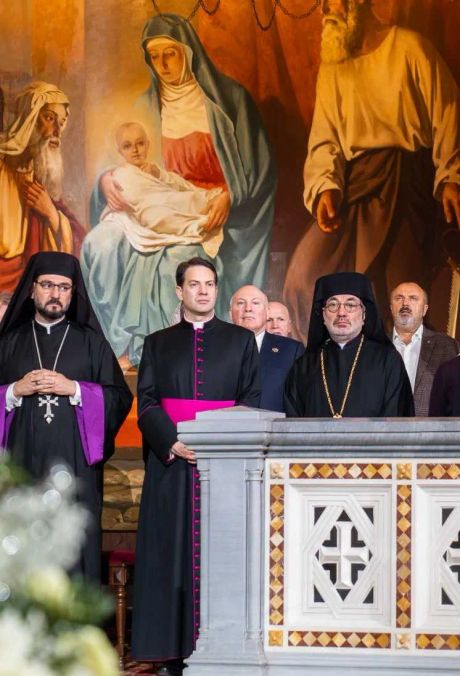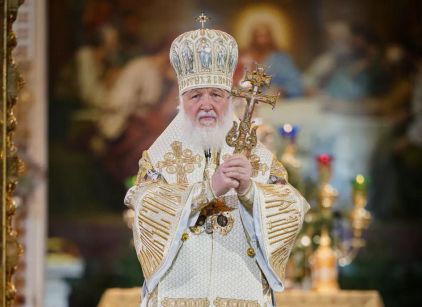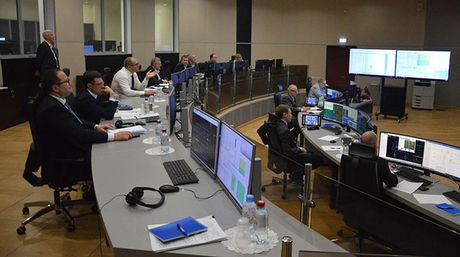Metropolitan Veniamin wished Orthodox Christians Merry Christmas
00:20, 7 January
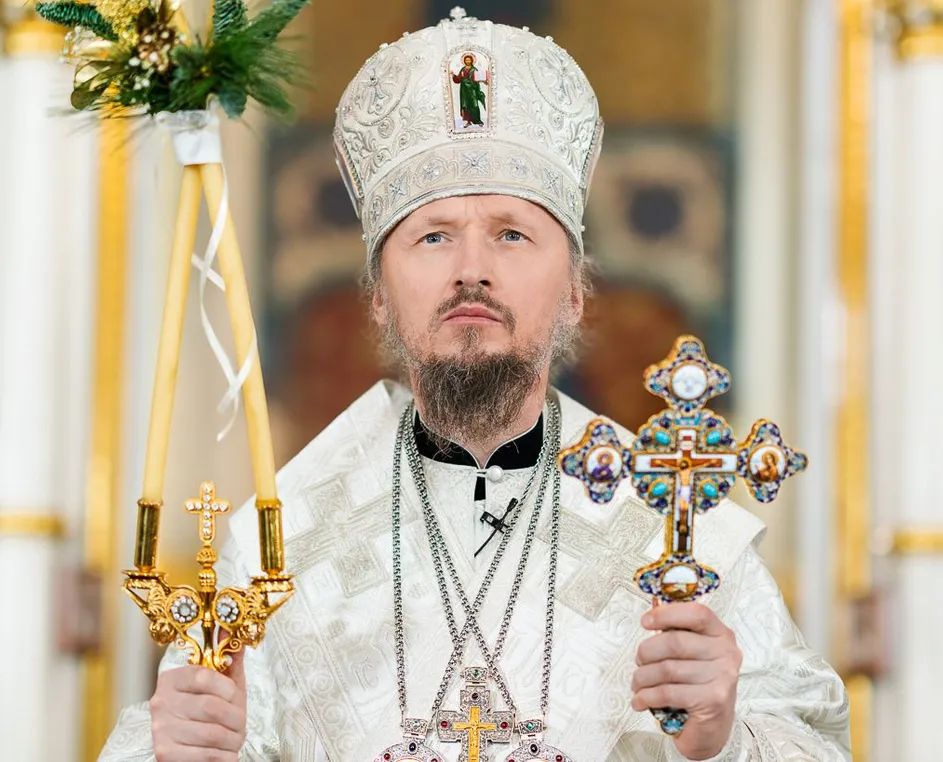
Photo: сhurch.by
Metropolitan Veniamin of Minsk and Zaslavl, Patriarchal Exarch of All Belarus, sent a Christmas message to those celebrating Christmas.
- Share on Facebook
- Share on VK
- Share on Twitter
Beloved archpastors, pastors, monastics and All the faithful children of the Belarusian Orthodox Church!
With prayerful joy, I congratulate you on the blessed and saving feast of the Nativity of Christ. Our hearts rejoice and are filled with grace-filled trembling, for "The disembodied is incarnated, the Word is made flesh, the Invisible is contemplated, and the Intangible is touched, and the Beginningless begins. The Son of God becomes the Son of Man: Jesus Christ is the same yesterday, today, and forever!" (Cathedral of the Most Holy Theotokos. Stichera on stichovne).
The great teacher of the Church, St. John Chrysostom, reveals the foundations of our joy and worldwide triumph: "Now the ancient bonds are resolved, death is broken, Paradise is open, the curse is destroyed, sin is removed, error is eradicated, the truth has returned, angels enter into communion with people and people tremblingly converse with angels" (The Word on the Nativity of our Savior Jesus Christ).
And the Church once again calls us to touch the great mystery of piety, the mystery of the Incarnation, which reveals the great truth about God's love and mercy for the human race. For only love for us can explain His coming into a world devoid of full communion with God, a world full of sin, disease, and death.
These days, we tenderly contemplate the image of the cave in which the Infant of God was born. But this cave is also evidence of His great humility, exhaustion, and condescension towards us, as the festive divine service shows.: "Lord, when You arrived in Bethlehem, You dwelt in a cave; having heaven as a throne, You were placed in a manger; He who is surrounded by armies of Angels descended to the shepherds to save our family as a Merciful one" (Stichera on stichovne. Cathedral of the Most Holy Theotokos).
By this, the Lord testifies that He does not demand or take anything from this world and its temporal benefits, for he already possesses everything. He came to give through Himself the fullness of Communion with God to all people, to the whole creation. According to St. Irenaeus of Lyon, God became man so that man could become God by grace. This is exactly what the Lord calls us to do, and it is in living with God that the purpose and meaning of human existence are contained.
The first man, Adam, was created not only to remain the supreme creation of God: he was called to become the beloved son of God, obedient to the Father in all things, but he failed to preserve the dignity of this great title and, having committed the fall, "went to a distant land," losing his primordial purity and the possibility of Communion with God.
Then the Son of God becomes the "Second Adam" in order to fulfill what Adam the first violated. He was "obedient even unto death, and the death of the cross" (Phil. 2:8). With his humility and obedience, he fulfilled the commandment of the Heavenly Father, restoring divine dignity to human nature.
These holy and saving reflections on the meaning of the Nativity of Christ should not remain knowledge that has no active power. "What do we bring You as a gift, O Christ, for having appeared on earth as a human being for us? For each of the creatures You have created brings gratitude to You: Angels – a song, heaven – a star, magi – gifts, shepherds – wonder, earth – a cave, desert – a manger..." - we hear the question of the festive Divine Service addressed to us.
Just as the Blessed Virgin gave Her Immaculate flesh to the Son of God, so Christ must be born in each of us, just as He was born in the cave of Bethlehem. In the words of St. Symeon the New Theologian, "in the future life, a Christian ... will be carefully tested to see if he had any likeness to Christ as a son to the father."
This new birth, entry into the fullness of Divine life, is gained through participation in the church's Sacraments, which give us the opportunity already here on earth to partake of the saving and sanctifying grace of God. And while most people recognize the need for Baptism, many often forget about other Sacraments, especially the Sacrament of the Divine Eucharist and Communion.
But unity with Christ cannot be only in words, it must be alive and real. We pray to our Heavenly Father: "Give us this day our daily bread." And our Lord Jesus Christ reveals the true meaning of these words.: "I am the living bread that came down from heaven; whoever eats this bread will live forever; and the bread that I will give is my flesh, which I will give for the life of the world" (John 6:51). This means that participation in the Divine Liturgy, during which we partake of the Body and Blood of Christ, is necessary for the fullness of life with God and our salvation.
But let us also remember that without a godly and virtuous life, participation in the Sacraments will not bring the necessary fruits. "The one who is upright, true, meek, kind, compassionate, merciful, merciful, kind-hearted, patient, uncomplaining, and humane is worthy of God," St. Simeon the New Theologian teaches us. And if we combine the love of worship with the fulfillment of Divine commandments, then each of us can become a nativity scene in which Christ will be born, a temple in which the Spirit of God will dwell.
Dear fathers, brothers and sisters in the Lord! I cordially congratulate you on Christmas and New Year's Eve, and wish that every day of your life be sanctified by the grace of God, that your actions be guided by active love for God and your neighbors, and that your thoughts be inspired by saving reflections on the great deeds that the Lord has accomplished for our salvation. May the joy of the Blessed Virgin Christ, who was born in Bethlehem, always fill your hearts, and may His blessing rest on all our families, our people, and our God-forsaken Fatherland!



